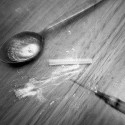Brain imaging study offers insight into alcohol's effect on brain
A new brain imaging study has provided insight into alcohol’s effect on the brain.
The study showed that after consuming alcohol, social drinkers had decreased sensitivity in brain regions involved in detecting threats, and increased activity in brain regions involved in reward.
This is the first human brain imaging study of alcohol’s effect on the response of neuronal circuits to threatening stimuli.
“The key finding of this study is that after alcohol exposure, threat-detecting brain circuits can’t tell the difference between a threatening and non-threatening social stimulus,” said Marina Wolf, PhD, at Rosalind Franklin University of Medicine and Science, who was unaffiliated with the study.
For the study, researchers at the National Institutes on Alcohol Abuse and Alcoholism worked with a dozen healthy participants who drink socially.
They used functional magnetic resonance imaging (fMRI) to study activity in emotion processing brain regions during alcohol exposure.
Over two 45-minute periods, researchers have the study participants either alcohol or a saline solution intravenously and showed images of fearful facial expressions.
The same group of participants were given both alcohol and placebo, on two separate days.
After comparing brain activity, researchers found that when participants received the placebo infusion, fearful facial expressions spurred greater activity than neutral expressions in the amygdala, insula, and parahippocampal gyrus, brain regions involved in fear and avoidance, as well as in the brain’s visual system.
But these regions showed no increased brain activity when the participants were intoxicated.
Besides this, researchers found that alcohol activated striatal areas of the brain that are important components of the reward system.
These findings support the idea that activation of the brain’s reward system is a common feature of all drugs of abuse.
Researchers found that the level of striatal activation was linked to how intoxicated the participants reported feeling.
These striatal responses help account for the stimulating and addictive properties of alcohol.
“I think the authors have set the standard for how studies on acute alcohol consumption should be conducted in the fMRI literature,” said Read Montague, PhD, at the Baylor College of Medicine, also unaffiliated with the study.
“The findings are a stepping stone to more liberal use of imaging methodologies to advance our understanding of addiction,” he added.
The study is published in the April 30 issue of The Journal of Neuroscience.
source: Asian News International

